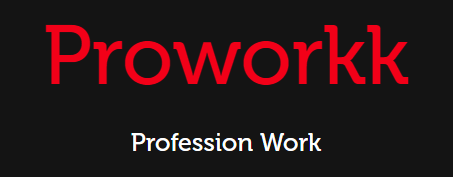Profession: Biomedical Engineer
Experience: Over 6 years
Location: Paris, France
My Personal Experience:
Over the past six years of my career as a biomedical engineer based in Paris, France, I have had the privilege of contributing to several groundbreaking projects. Every endeavor has been a chance to make a real difference, from designing advanced prosthetics to developing medical imaging devices.
I remember my first project as if it were yesterday. It was a nerve-wracking yet exhilarating experience, but the feeling of accomplishment when the device was successfully tested on a patient made it all worthwhile.
In the dynamic world of biomedical engineering, I’ve had to adapt and learn continuously. Each day presents new challenges and opportunities, but the knowledge that my work positively impacts people’s lives motivates me.
The Hard part I feel about this profession as per my experience till now:
Being a biomedical engineer has been a remarkable journey filled with challenges and rewards. One of the hardest aspects I’ve encountered is the constant pressure to stay updated with rapidly advancing medical technologies. In the ever-evolving field of medical engineering, staying current with the latest innovations, research, and breakthroughs is crucial to delivering cutting-edge solutions.
Moreover, working for biomedical engineering companies has exposed me to the challenges of meeting stringent deadlines and coping with the demand for precision and accuracy. Developing medical devices and equipment that adhere to strict regulatory guidelines while being efficient and safe is no easy task.
Additionally, the nature of the job requires strong interdisciplinary collaboration. As a biomedical engineer, I often work with professionals from various domains, such as doctors, researchers, and industrial designers. While this fosters innovation, effective communication and coordination can sometimes prove challenging.
Things I find interesting or feel “happy” about this profession are:
Despite the challenges, the field of biomedical engineering brings immense satisfaction and joy. The opportunity to contribute to medical advancements and improve the quality of life for patients is genuinely fulfilling. Witnessing the practical applications of the medical devices and technologies I’ve helped create is a deeply gratifying experience.
As a biomedical engineer, I combine my passion for engineering and medicine. This allows me to explore the realms of biological engineering and use my skills to develop innovative solutions that can save lives and enhance healthcare.
Pros And Cons I feel about this profession:
Pros:
- Meaningful Impact: Working as a biomedical engineer gives me a sense of purpose, knowing that my contributions directly impact people’s health and well-being.
- Diverse Opportunities: The biomedical engineering field offers many opportunities, from medical device development to research in regenerative medicine and tissue engineering.
- Continuous Learning: Embracing new technologies and research keeps the job intellectually stimulating and offers opportunities for professional growth.
Cons:
- High Expectations: The demanding nature of the profession requires high commitment and responsibility, leading to occasional work-related stress.
- Regulatory Challenges: Developing medical devices that meet strict regulatory requirements can be time-consuming and resource-intensive.
- Risk of Failure: Innovation often involves trial and error, and not every project succeeds, leading to moments of disappointment.
My suggestions for newcomers in this profession:
For aspiring biomedical engineers starting their journey, I offer the following advice:
- Education and Training: Invest in a strong educational foundation in biomedical engineering, ensuring you stay updated with the latest industry trends and technologies.
- Networking: Build connections with professionals in the field, join relevant associations, and attend conferences to broaden your knowledge and opportunities.
- Internships and Practical Experience: Seek internships or hands-on experience with biomedical engineering companies or research institutions to gain practical insights into the field.
- Embrace Challenges: Embrace challenges and failures as learning opportunities; perseverance and resilience are key traits in this profession.
- Ethical Considerations: Always prioritize patient safety and ethical considerations in your work, as biomedical engineering directly impacts people’s lives.
In conclusion, being a biomedical engineer has been a transformative journey filled with growth, dedication, and an unwavering passion for improving healthcare. Embracing the highs and lows of this profession has taught me valuable lessons, and I am eager to continue making a positive impact on patient’s lives through innovative medical solutions.
